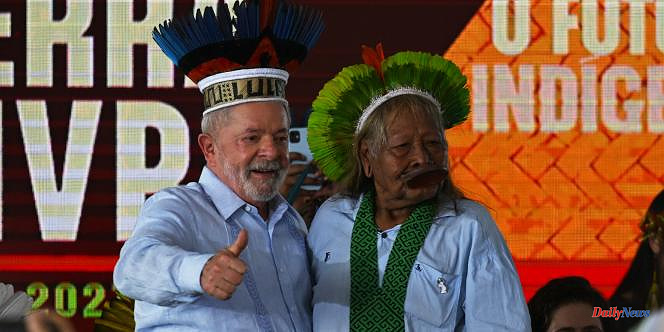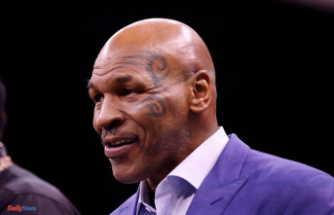Brazilian President Luiz Inacio Lula da Silva signed decrees on Friday (April 28) legalizing six new reserves for indigenous peoples, the first since 2018.
These reserves guarantee indigenous peoples the exclusive use of natural resources. They are considered by scientists as a bulwark against deforestation, a major challenge in the fight against global warming. “It is a process that takes time, but we will ensure that as many indigenous reservations as possible are legalized. If we want to achieve zero deforestation by 2030, we need certified indigenous reserves,” Lula said.
No indigenous land had been legalized under the term of Jair Bolsonaro (2019-2022), Lula's far-right predecessor, who promised before coming to power "not to give up another centimeter" to the natives.
Two of the six new reserves are located in the Amazon. The largest, called Unieuxi and attributed to 249 natives of the Maku and Tukano peoples, covers more than 550,000 hectares in the state of Amazonas (North). Two other reserves are located in the northeast of the country, one in the south and one in the center.
800,000 indigenous people live in Brazil
Friday's announcement was made during the closing ceremony of the 19th edition of the "Terra Livre" (Free Land) encampment, an annual gathering of thousands of indigenous people from across the country in Brasilia, the capital .
According to the last census of 2010, some 800,000 indigenous people live in Brazil, most of them in reservations, which occupy 13.75% of the territory. A total of 764 reserves have been delineated, but a third of them have not yet been approved.
The Brazilian Constitution, which dates from 1988, guarantees indigenous peoples "original rights" to "the lands they traditionally occupy", the demarcation of which is the responsibility of the Brazilian state. But this process can last for years, under the leadership of Funai, the public body responsible for identifying and delimiting them.
This demarcation must then be validated by the Ministry of Justice, then approved by a presidential decree. Once approval is effective, access by any non-indigenous person to these territories is only possible with the authorization of Funai.
According to a study published in March 2022 by the World Resources Institute (WRI) and the consulting firm Climate Focus, the areas of tropical forests occupied by indigenous peoples in Brazil, Colombia, Mexico and Peru "capture more than double the carbon " than the others. This is partly due to the traditional way of life of the natives, more respectful of the environment, which keeps the jungle intact.












